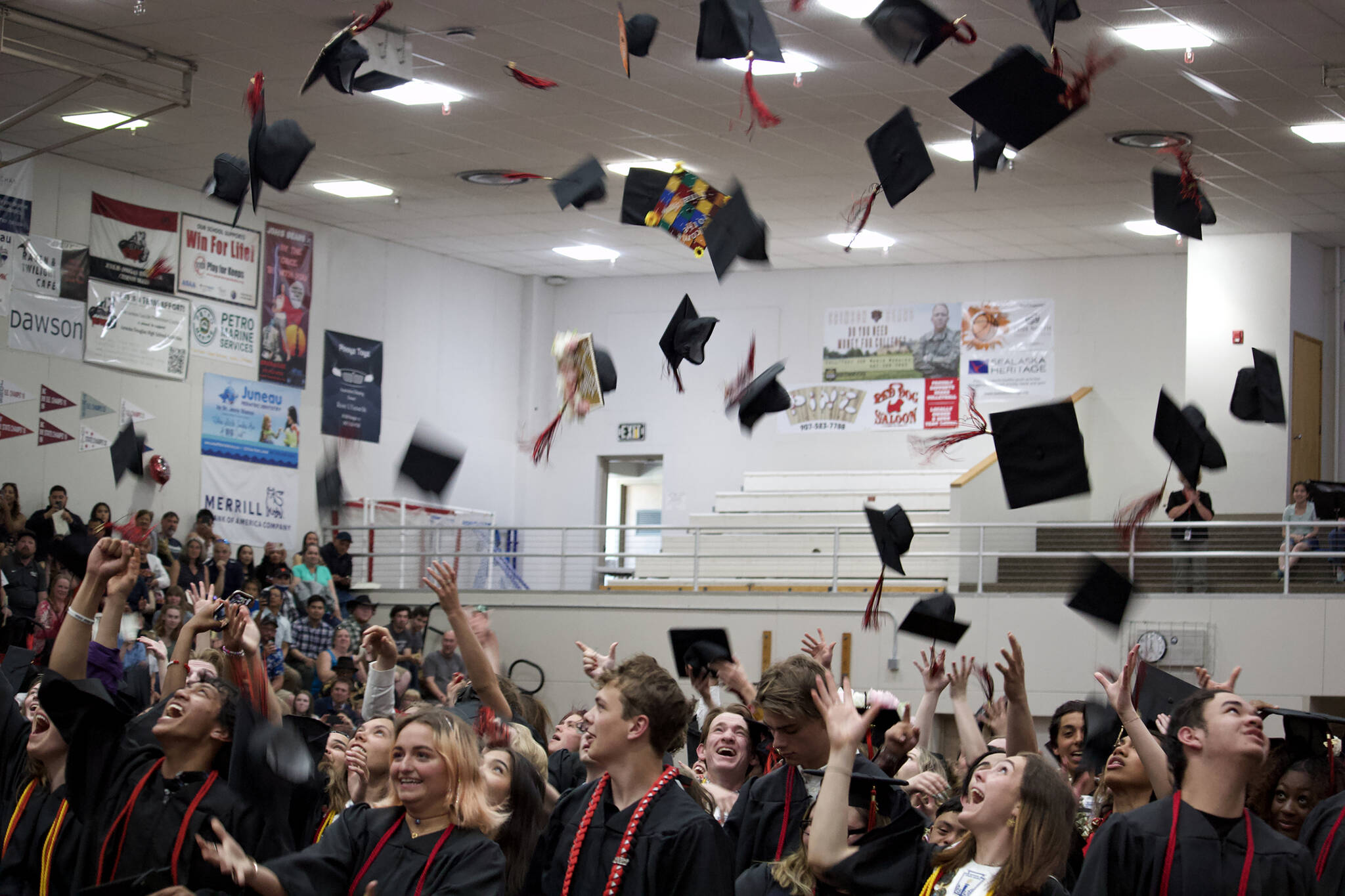The simple reality is Juneau students can now wear regalia and other objects of cultural significance at events such as graduations. How the policy got unanimously approved by the Juneau Board of Education on Friday is considerably more complex.
“It doesn’t look anything like the way I initially wrote it,” said Martin Stepetin Sr., the board member who introduced the original proposal, describing a rewriting process involving many months and many stakeholders. “But it really has been taken on as a very Juneau-centered policy, which is great and the way it’s supposed to be.”
The topic has been controversial recently in Anchorage and in many districts across the U.S., resulting in policies in some areas that nullify bans. Juneau students have been allowed to wear items — and many did during this spring’s graduation ceremonies — but board members said the official policy is a preventative measure to ensure disputes don’t occur here.
“We don’t have a problem with regalia in the Juneau School District, but this ensures long after we’re gone there won’t be any concerns about the use of regalia,” said Stepetin, who is also seeking to implement a statewide cultural regalia policy.
The first and last sentences of the official policy reveal how it is both more local and more broad than the original draft and other proposals elsewhere.
“The Juneau School District is situated upon the traditional lands of the Aak’w Kwáan and T’aaku Kwáan,” the first sentence reads. While most of the rest of the policy continues to acknowledge Alaska Natives as the motivating factor, the final sentence invokes the Civil Rights Act of 1964 by declaring “the board continues to support on-going incorporation of cultural regalia into district activities, events and ceremonies and intends this policy to be universally applied across all cultural groups.”
The rewriting process involved a multitude of Alaska Native and other entities during the past year, with a district summary noting an overall agreement “the draft could be less wordy and there was support for the policy to be inclusive of all cultures.” Board Member Emil Mackey also said the language of the original draft essentially was what a statewide policy would resemble.
Stepetin said he wasn’t happy with some changes when they were made, “but I’m happy with where it is now.”
Cultural regalia at school events emerged as a controversial issue in Alaska during the past few years when the Anchorage School District set aside a ban in 2019, but still required students to get approval before wearing items.
“It is completely inappropriate for there to be anyone in a position of authority to tell Native people when and where we can wear our cultural regalia, in particular around rites of passage,” Ayyu Qassataq, an Inupiaq whose son was told in 2020 he could not wear regalia at graduation, told the Anchorage Daily News in a 2021 article that attracted national attention to the situation.
The district that spring approved a new policy allowing “traditional objects of tribal regalia or recognized objects of cultural significance.”
At least nine states — Utah, Arizona, Kansas, Minnesota, North Dakota, Oklahoma, Oregon, South Dakota and Washington — have protected wearing cultural items at public school events, sometimes following high-profile incidents. But the policies haven’t always prevented further incidents.
In Oklahoma, for example, a security guard tried to forcibly remove an eagle feather from a student’s mortarboard at her high school graduation in May, according to the Tulsa World. In Kansas, two Indigenous students were told last month they couldn’t wear caps with Indigenous beadwork, according to the Wichita TV station KWCH.
The movement also includes other cultures. At Rancho High School in Nevada students petitioned and appeared before the school board seeking to wear items such as a stash with flags Mexico and Guatemala, a Hispanic-themed stole, and gay Black student wanting to wear a stole reading “Black grads matter,” according to The Nevada Independent.
• Contact reporter Mark Sabbatini at mark.sabbatini@juneauempire.com.

